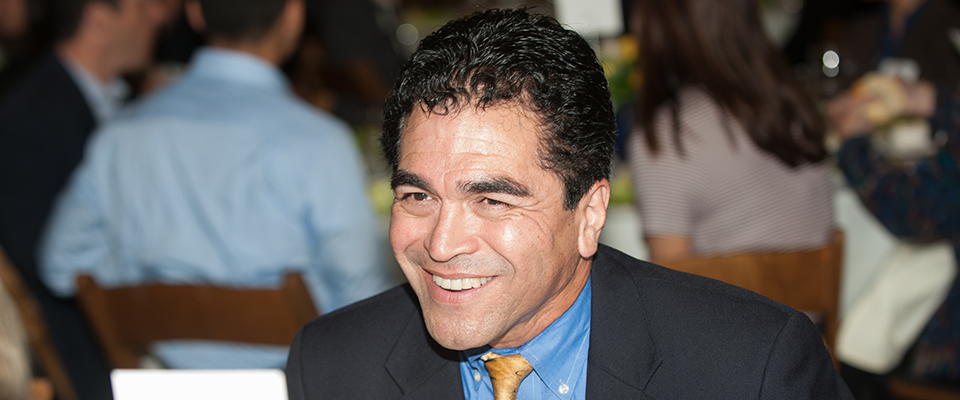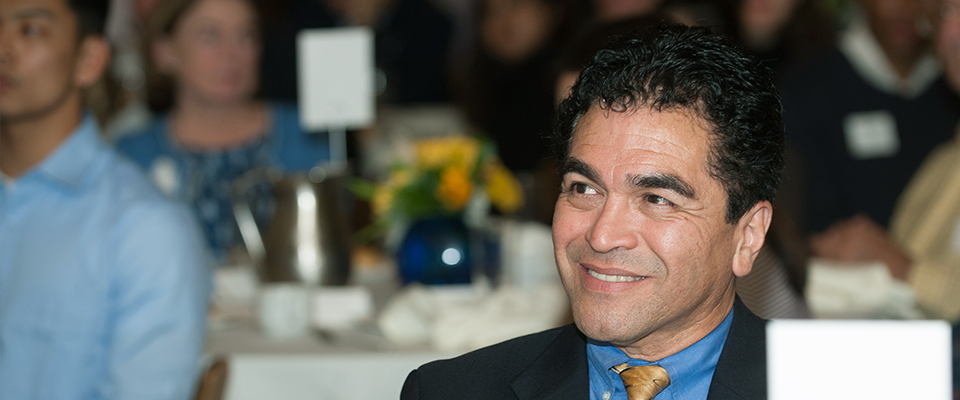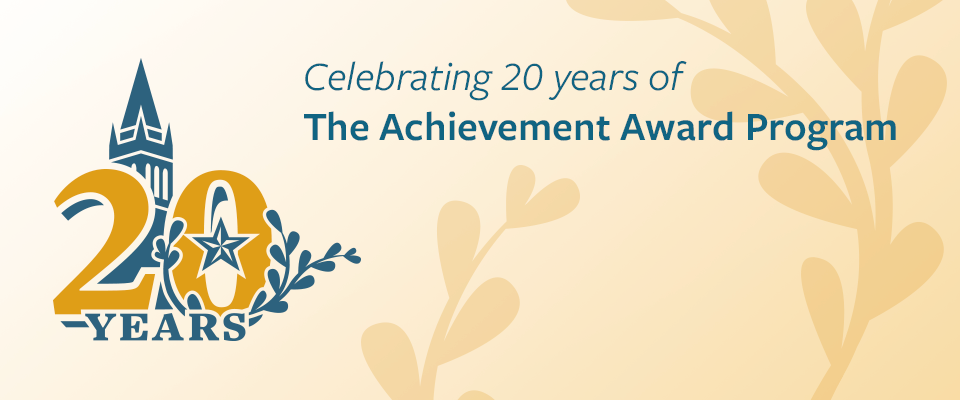Michael Trevino ’89 was a founding member of the task force that created The Achievement Award Program (TAAP) and has been one of program’s biggest advocates in the 20 years since. Michael’s passion for TAAP is personal: if TAAP was in place at UC Berkeley when he was a student here, he would have been a likely recipient.
Michael grew up in Gilroy, in an agricultural community where the school schedule revolved around harvest season. Michael picked cucumbers and peppers all day in the summer and worked at McDonalds and JC Penney every day after school, often in eight-hour shifts.
As a high school senior, college was not on his radar.
“I was not tracked for college. I didn’t take college prep classes and I didn’t even know what the SAT was,” he says. “Gilroy was a farm community—70 percent of my high school class dropped out, so just graduating felt like success.”
Michael earned his Associate of Science degree in electronics from nearby Gavilan Community College in 1982, then landed a job with IBM, where he helped make mainframe computers. He later moved on to work with the data storage systems team at Magnex.
“I thought I had made it,” says Michael.
One day his tia, who had helped raise him, said, “I’m proud of you that you have a good job, with good benefits, and that you’re making a living. But I always thought you would do more with your life.”
Michael was shocked at first, but then he took her gentle admonishment to heart and soon after, at age 25, enrolled at UC Berkeley. [He later endowed a TAAP scholarship named in honor of his Tia Linda.]

“Cal was amazing,” he says. “I had financial aid through the Educational Opportunity Program and for the first time since I was 15, I didn’t have a full time job while I was going to school. I had an extra eight hours a day to go to the library. The world just opened up.”
Michael majored in history and social sciences with the intention of attending law school. While he was an undergraduate, he launched a “buddy” program at Boalt Hall (now Berkeley Law) that matched underrepresented minority undergraduate students interested in a career in law with students at Boalt and UC Hastings College of Law. Before long, he had matched 200 students.
This caught the attention of the vice president of the Cal Alumni Association (CAA), Pamela Arbuckle. She was starting a mentorship program for CAA that would target minority communities. She asked Michael to help her recruit. Little did he know but this would be the beginning of a lifetime relationship with the Cal Alumni Association.
A few years later he graduated from the University of Washington School of Law and married Lori Carr, whom he met at Cal. “We married at the UC Berkeley Faculty Glade and had the Cal band (directed by Lori a member of the band) and a mariachi band,” he recalls. “It was a blue and gold affair with a teddy bear on the cake.” They honeymooned in Orlando, cheering for the Golden Bears, as they beat Clemson in the Citrus Bowl.
After earning his J.D., Michael accepted an Administrative Fellows Program post at Harvard. He was president of the Cal Alumni Club of New England, and while there was nominated to serve on the CAA Board of Directors.
Soon he and Lori moved back to the Bay Area and Michael embarked on a career in university administration, at Hastings School of Law, UC Office of the President, UCSF, and UC Berkeley.
“TAAP is so important to me because it’s the kind of program that I would have been in as a first-generation college student. Cal changed my life, and I wanted to help others have the same experience I had there.”
Michael was an assistant dean at the Goldman School of Public Policy in 1998 when he was tapped to serve on a task force CAA formed at the request of Chancellor Robert Berdahl. The chancellor had asked the organization to develop a plan to increase the enrollment of minority students at Cal, a response to the passage of Proposition 209, which prohibited the consideration of race, ethnicity, or gender in college admissions. In a few short months, the task force created TAAP.
“TAAP is so important to me because it’s the kind of program that I would have been in as a first-generation college student,” Michael says. “Cal changed my life, and I wanted to help others have the same experience I had there.”
Today, 20 years and nearly 400 TAAP scholars later, Michael says he is awed by the quality of students in the program. “Every day I’m inspired by our students,” he says. “And when I talk to TAAP donors, that is the word they use too—inspiration. They understand that continuing to support these scholars is important. I mean, why else are we here, but to help others have the same opportunities we had?”





















